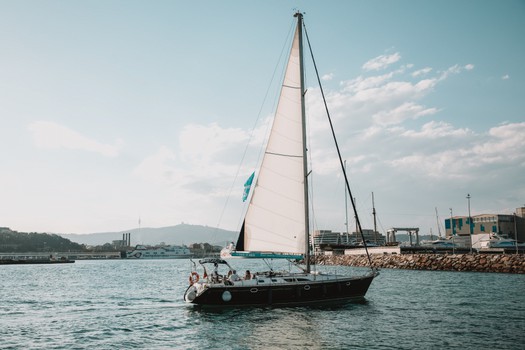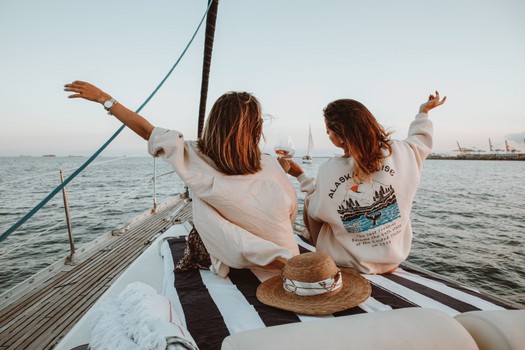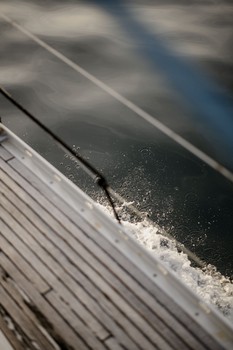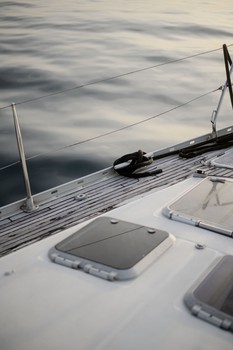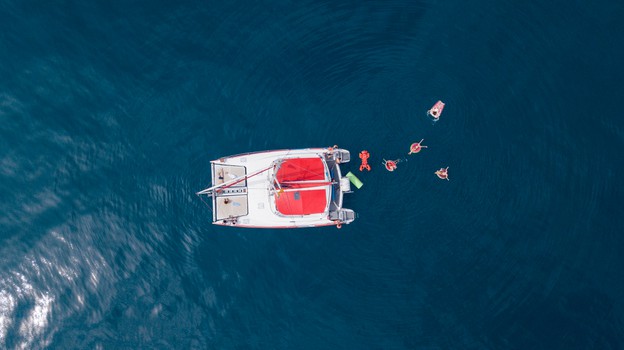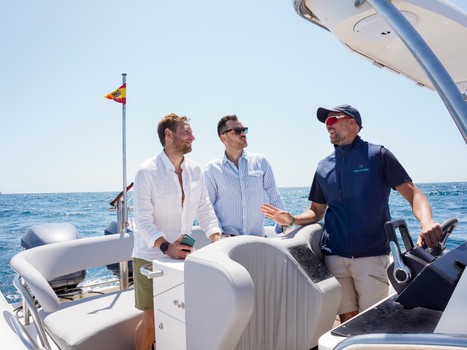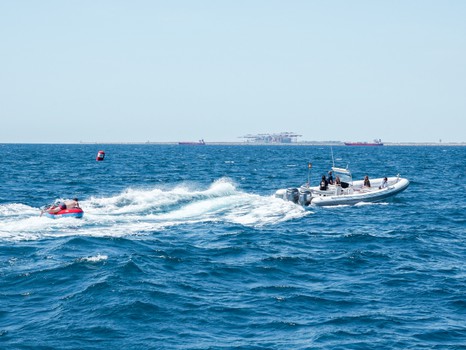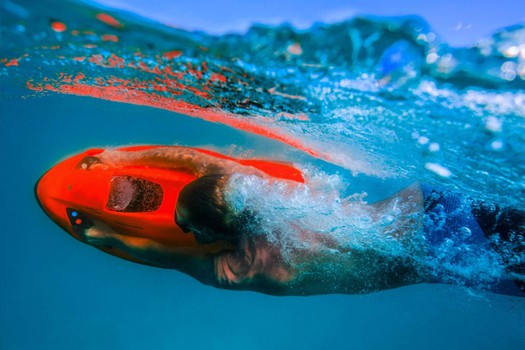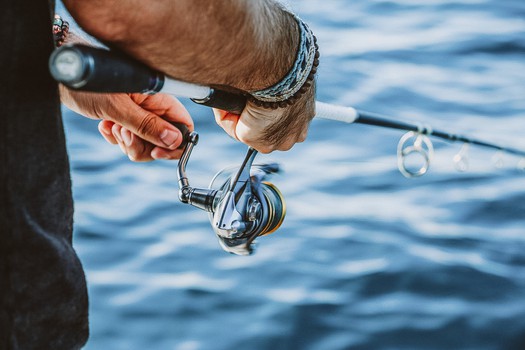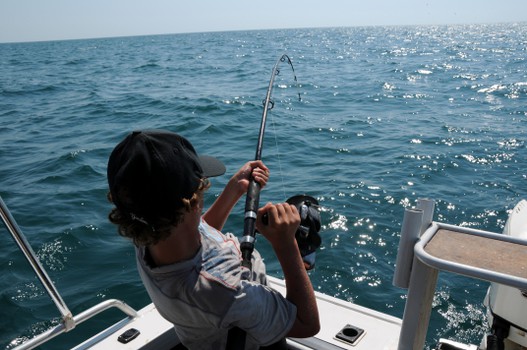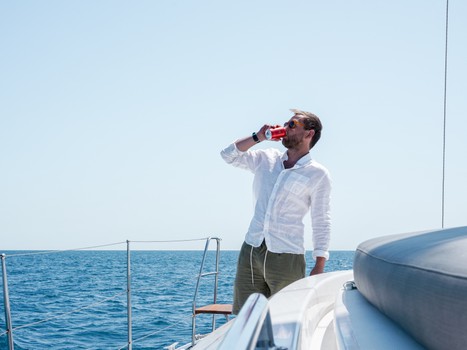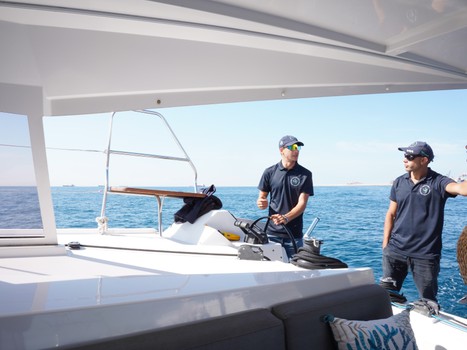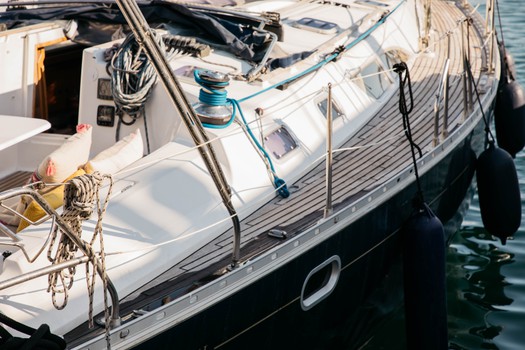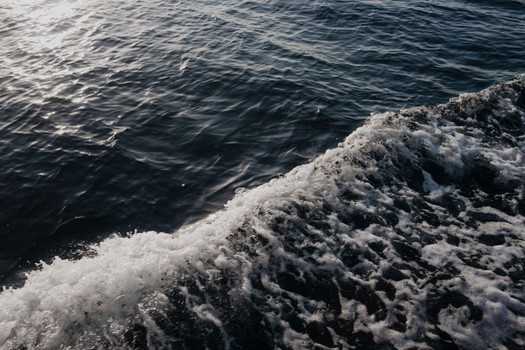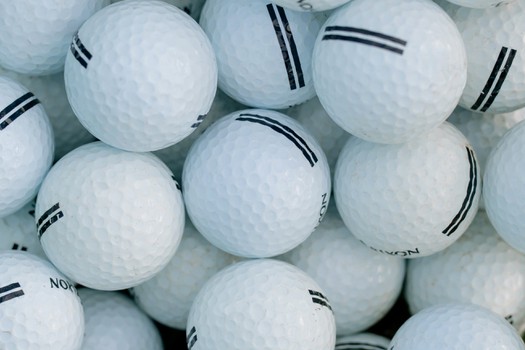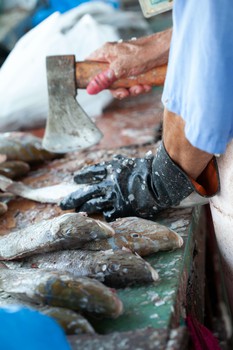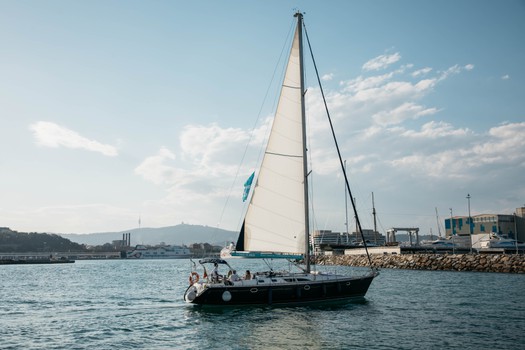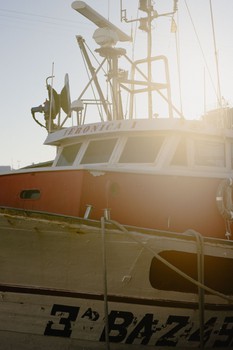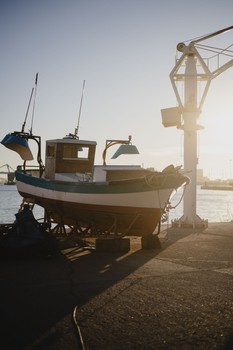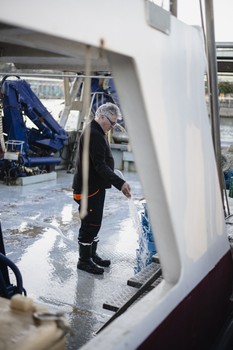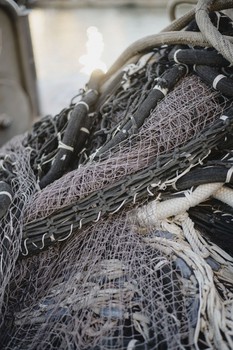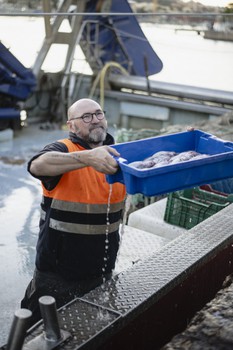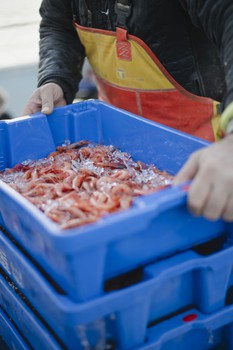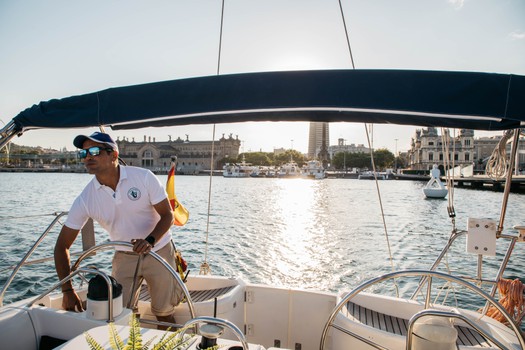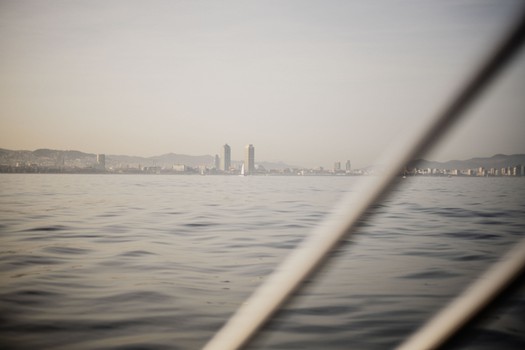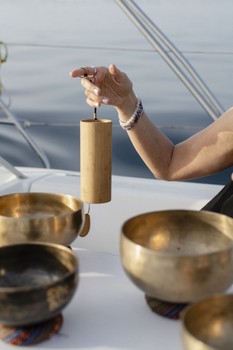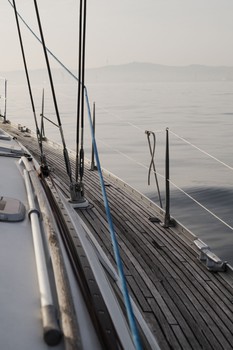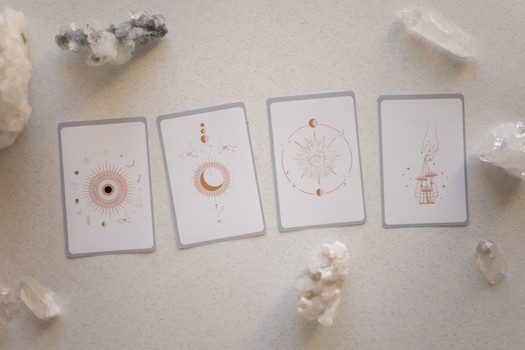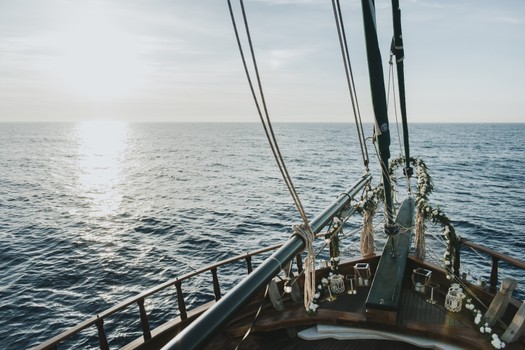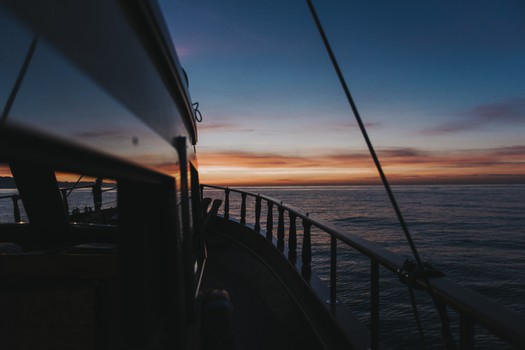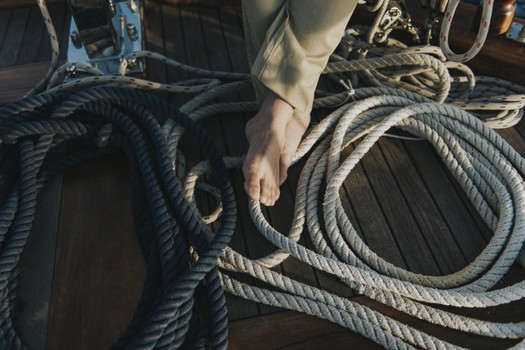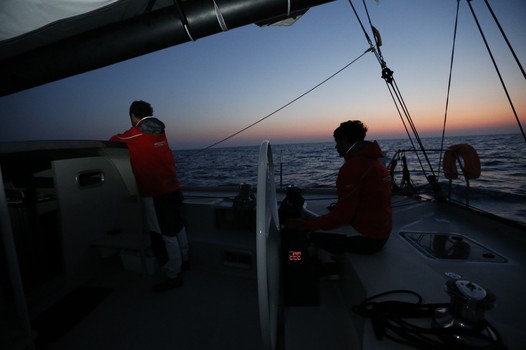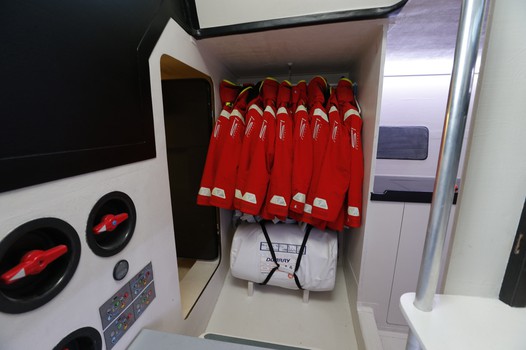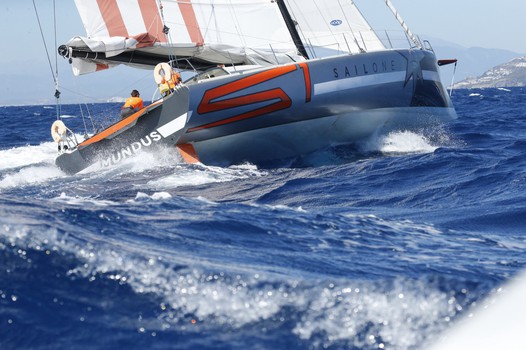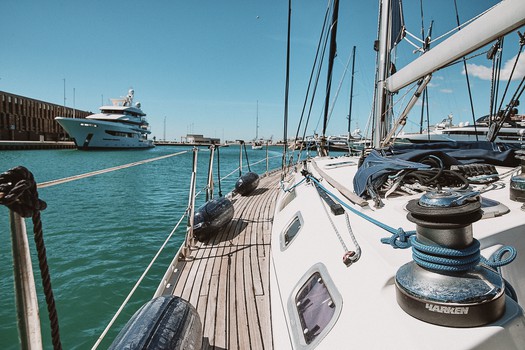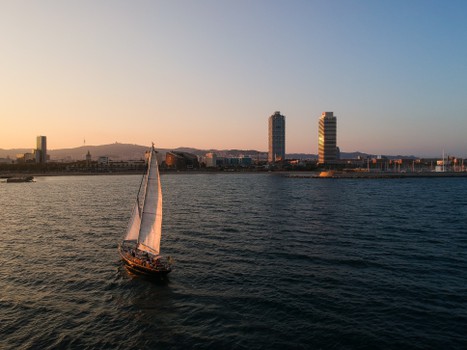EXPERIENCES WITH
BOAT IN BARCELONA
EXPERIENCES

Welcome to Experiences by This is Med, your gateway to the most unforgettable maritime adventures in the dazzling city of Barcelona. Dive into our exclusive collection of nautical experiences, each crafted to enchant, inspire, and create memories that last a lifetime. From exhilarating Boat Trips and enchanting Sunset Cruises to tranquil Sailing Tours and vibrant Catamaran Tours, we offer a spectrum of sea adventures to suit every taste and occasion.
Explore Barcelona's history in a new way with this experience that combines a historic coastal walking tour with a relaxing …
Explore Barcelona's history in a new way with this experience that combines a historic coastal walking tour with a relaxing sunset boat ride to admire the views from the open sea.
We'll start at the Cathedral of Santa Maria del Mar, a Gothic architectural gem in the city. Accompanied by a professional guide, we'll delve into Barcelona's past by walking from Ciutat Vella to La Barceloneta along the coast. You'll learn how this coastal city has been shaped throughout history by fishermen, sailors, and craftsmen.
Once we reach the Marina Vela Port, the guide will lead us to the boat and introduce us to the crew. On board, you can unwind as we head into the open sea, savoring the sunset with a snack. From this unique perspective, you'll be able to admire the coastline you just explored on foot: the panoramic views of beaches, iconic buildings, and Barcelona's skyline from the sea feel completely different!
Why choose our tour?
- Expert local guides passionate about Barcelona's history and culture.
- A perfect combination of land and sea experiences.
- Exclusive panoramic views of the city from the open sea.
- An enriching experience for history enthusiasts.
Enjoy a unique day and uncover all the secrets of Barcelona from an entirely new perspective.
Barcelona Coast Guided Tour
Guided walking tour along the coast of Barcelona and a boat ride to enjoy views from the open sea.
Explore Barcelona's history in a new way with this experience that combines a historic coastal walking tour with a relaxing sunset boat ride to admir…
Barcelona Coast Guided Tour
Guided walking tour along the coast of Barcelona and a boat ride to enjoy views from the open sea.
Explore Barcelona's history in a new way with this experience that combines a historic coastal walking tour with a relaxing sunset boat ride to admire the views from the open sea.
We'll start at the Cathedral of Santa Maria del Mar, a Gothic architectural gem in the city. Accompanied by a professional guide, we'll delve into Barcelona's past by walking from Ciutat Vella to La Barceloneta along the coast. You'll learn how this coastal city has been shaped throughout history by fishermen, sailors, and craftsmen.
Once we reach the Marina Vela Port, the guide will lead us to the boat and introduce us to the crew. On board, you can unwind as we head into the open sea, savoring the sunset with a snack. From this unique perspective, you'll be able to admire the coastline you just explored on foot: the panoramic views of beaches, iconic buildings, and Barcelona's skyline from the sea feel completely different!
Why choose our tour?
- Expert local guides passionate about Barcelona's history and culture.
- A perfect combination of land and sea experiences.
- Exclusive panoramic views of the city from the open sea.
- An enriching experience for history enthusiasts.
Enjoy a unique day and uncover all the secrets of Barcelona from an entirely new perspective.
Live a truly unique experience where Antoni Gaudí's architectural creativity merges with the beauty of the Mediterran…
Live a truly unique experience where Antoni Gaudí's architectural creativity merges with the beauty of the Mediterranean. Embark on a journey through the waters while exploring the marine inspiration behind the modernist masterpiece of La Pedrera.
This exclusive experience offers:
- An exciting guided tour at La Pedrera: A passionate expert about Gaudí's life and work will accompany you on this tour, sharing stories and secrets about this architectural genius who left an indelible mark on Barcelona.
- A private transfer that will take you from La Sagrada Familia to the Boarding Port, where the maritime adventure begins.
- During the boat journey, you will enjoy an enriching experience with the guide, exploring how Gaudí was inspired by the shapes and colors of the Mediterranean for his designs. You'll discover how the curves of the waves and the changing tones of the sea are reflected in his creations.
Discover the cultural and artistic richness of Barcelona in this unique experience that connects the city's authenticity with its maritime legacy. Immerse yourself in an experience that combines history, art, and the charm of the Mediterranean Sea while delving into the essence of Barcelona.
This is an exceptional opportunity to unite Gaudí's creativity with the natural beauty of the Mediterranean coast, creating unforgettable memories.
Gaudí & The Sea
Enjoy a tour of Gaudí's La Pedrera with a Boat Ride while we explain its history.
Live a truly unique experience where Antoni Gaudí's architectural creativity merges with the beauty of the Mediterranean. Embark on a journey …
Gaudí & The Sea
Enjoy a tour of Gaudí's La Pedrera with a Boat Ride while we explain its history.
Live a truly unique experience where Antoni Gaudí's architectural creativity merges with the beauty of the Mediterranean. Embark on a journey through the waters while exploring the marine inspiration behind the modernist masterpiece of La Pedrera.
This exclusive experience offers:
- An exciting guided tour at La Pedrera: A passionate expert about Gaudí's life and work will accompany you on this tour, sharing stories and secrets about this architectural genius who left an indelible mark on Barcelona.
- A private transfer that will take you from La Sagrada Familia to the Boarding Port, where the maritime adventure begins.
- During the boat journey, you will enjoy an enriching experience with the guide, exploring how Gaudí was inspired by the shapes and colors of the Mediterranean for his designs. You'll discover how the curves of the waves and the changing tones of the sea are reflected in his creations.
Discover the cultural and artistic richness of Barcelona in this unique experience that connects the city's authenticity with its maritime legacy. Immerse yourself in an experience that combines history, art, and the charm of the Mediterranean Sea while delving into the essence of Barcelona.
This is an exceptional opportunity to unite Gaudí's creativity with the natural beauty of the Mediterranean coast, creating unforgettable memories.
Come aboard our exclusive catamaran and let yourself be carried away by the magic of the sea while you enjoy spectacular vie…
Come aboard our exclusive catamaran and let yourself be carried away by the magic of the sea while you enjoy spectacular views, moments of fun and an incredible feeling of freedom with a drink in your hands.
The experience begins in the exclusive port of Marina Vela, right next to the renowned W hotel and Barceloneta beach. Upon arrival, the crew will welcome you on board with music, a courtesy drink and a typical local tapa to start the experience in a Mediterranean style. Discover all the areas of the catamaran and make yourself comfortable where you prefer. You can sit in the shaded aft seats to feel the sea breeze, or lie on the forward nets in the sun to tan and be closer to the sea. You will leave land to set sail out to sea for 2 hours.
If you have selected the daytime option, the boat will make a 30-minute stop to take a dip with inflatables in the blue waters of the Mediterranean. If you have selected the sunset option, you will have the opportunity to admire the fantastic sunset over the Barcelona skyline.
The catamaran has enough space to accommodate a small group of only 30 people with its captain and sailor in a spacious and comfortable way. It is also a fully equipped boat and one of the most stable.
The Catamaran Experience
Sail along the coast of Barcelona and enjoy a swim during the day or at sunset.
Come aboard our exclusive catamaran and let yourself be carried away by the magic of the sea while you enjoy spectacular views, moments of fun and an…
The Catamaran Experience
Sail along the coast of Barcelona and enjoy a swim during the day or at sunset.
Come aboard our exclusive catamaran and let yourself be carried away by the magic of the sea while you enjoy spectacular views, moments of fun and an incredible feeling of freedom with a drink in your hands.
The experience begins in the exclusive port of Marina Vela, right next to the renowned W hotel and Barceloneta beach. Upon arrival, the crew will welcome you on board with music, a courtesy drink and a typical local tapa to start the experience in a Mediterranean style. Discover all the areas of the catamaran and make yourself comfortable where you prefer. You can sit in the shaded aft seats to feel the sea breeze, or lie on the forward nets in the sun to tan and be closer to the sea. You will leave land to set sail out to sea for 2 hours.
If you have selected the daytime option, the boat will make a 30-minute stop to take a dip with inflatables in the blue waters of the Mediterranean. If you have selected the sunset option, you will have the opportunity to admire the fantastic sunset over the Barcelona skyline.
The catamaran has enough space to accommodate a small group of only 30 people with its captain and sailor in a spacious and comfortable way. It is also a fully equipped boat and one of the most stable.
Embark on an exhilarating journey aboard a speedboat equipped with the latest in water games, including the thrilling donut,…
Embark on an exhilarating journey aboard a speedboat equipped with the latest in water games, including the thrilling donut, dynamic seabob, and classic paddle. This experience is specially designed for adventurous souls seeking thrills and a touch of adrenaline.
Experience the perfect blend of water sports and open-sea navigation. As you glide over the waves and feel the sea breeze, you'll enjoy an unparalleled sense of freedom and excitement. From the thrill of the donut to the speed and agility of the seabob, each activity has been chosen to maximize your fun and quench your thirst for adventure.
This excursion is not just a boat ride; it's an invitation to dive into action and entertainment in a stunning maritime setting. Perfect for groups of friends or families seeking a unique experience, our excursion promises fun, adrenaline, and unforgettable memories. Get ready to experience the thrill of the sea like never before and dive into a water adventure that will surpass all your expectations!
Water Activities in Barcelona
Enjoy Our Incredible Water Activities in Barcelona
Embark on an exhilarating journey aboard a speedboat equipped with the latest in water games, including the thrilling donut, dynamic seabob, and clas…
Water Activities in Barcelona
Enjoy Our Incredible Water Activities in Barcelona
Embark on an exhilarating journey aboard a speedboat equipped with the latest in water games, including the thrilling donut, dynamic seabob, and classic paddle. This experience is specially designed for adventurous souls seeking thrills and a touch of adrenaline.
Experience the perfect blend of water sports and open-sea navigation. As you glide over the waves and feel the sea breeze, you'll enjoy an unparalleled sense of freedom and excitement. From the thrill of the donut to the speed and agility of the seabob, each activity has been chosen to maximize your fun and quench your thirst for adventure.
This excursion is not just a boat ride; it's an invitation to dive into action and entertainment in a stunning maritime setting. Perfect for groups of friends or families seeking a unique experience, our excursion promises fun, adrenaline, and unforgettable memories. Get ready to experience the thrill of the sea like never before and dive into a water adventure that will surpass all your expectations!
Embark on an exciting deep-sea fishing adventure along the coasts of Barcelona, guided by a professional instructor. Designe…
Embark on an exciting deep-sea fishing adventure along the coasts of Barcelona, guided by a professional instructor. Designed to be a total disconnect from daily life, this activity is the perfect opportunity to relax and create unforgettable memories, whether with friends or on a family trip.
Experience the thrill of sports fishing in the vast and beautiful Mediterranean. Our excursion is not just a fishing day; it's an invitation to immerse yourself in the tranquility of the sea while enjoying the challenge and joy of fishing. This experience skillfully combines the adrenaline of the catch with the serenity and breathtaking views of the sea, offering you a unique moment to connect with nature and your loved ones.
Get ready for a day full of adventures, where you can learn and enjoy fishing in one of the most spectacular environments in the world. Book your fishing experience with us and prepare for a day that goes beyond fishing; it's a true escape in the heart of the Mediterranean!
Boat fishing in Barcelona
Boat Fishing Adventure in Barcelona with a Professional Instructor
Embark on an exciting deep-sea fishing adventure along the coasts of Barcelona, guided by a professional instructor. Designed to be a total disconnec…
Boat fishing in Barcelona
Boat Fishing Adventure in Barcelona with a Professional Instructor
Embark on an exciting deep-sea fishing adventure along the coasts of Barcelona, guided by a professional instructor. Designed to be a total disconnect from daily life, this activity is the perfect opportunity to relax and create unforgettable memories, whether with friends or on a family trip.
Experience the thrill of sports fishing in the vast and beautiful Mediterranean. Our excursion is not just a fishing day; it's an invitation to immerse yourself in the tranquility of the sea while enjoying the challenge and joy of fishing. This experience skillfully combines the adrenaline of the catch with the serenity and breathtaking views of the sea, offering you a unique moment to connect with nature and your loved ones.
Get ready for a day full of adventures, where you can learn and enjoy fishing in one of the most spectacular environments in the world. Book your fishing experience with us and prepare for a day that goes beyond fishing; it's a true escape in the heart of the Mediterranean!
Immerse yourself in a unique experience that blends the beauty of the Mediterranean Sea with artistic creativity, designed t…
Immerse yourself in a unique experience that blends the beauty of the Mediterranean Sea with artistic creativity, designed to be enjoyed with friends or family. During two thrilling hours of sailing along the coast of Barcelona, we'll venture into the sea in search of inspiration and special moments. The infinite horizon and sea breeze will be your companions on this journey in pursuit of creative sparks and memorable moments.
After the boat experience, a private transfer service will take us to the heart of El Born, where a ceramics workshop will take place. The main objective of this workshop is to convey the beauty and essence of the Mediterranean Sea through handmade ceramics. Here, each participant, whether close friends or family, will have the opportunity to unleash their creativity and craft their own ceramic pieces, inspired by the richness and diversity of the marine environment.
This experience is much more than a simple ceramics workshop; it is an emotional and artistic journey that will deeply connect you with the Mediterranean, allowing you to capture its beauty in your own creations.
Ceramic workshop with boat ride
Enjoy Our Ceramic Workshop and a Boat Ride in Barcelona
Immerse yourself in a unique experience that blends the beauty of the Mediterranean Sea with artistic creativity, designed to be enjoyed with friends…
Ceramic workshop with boat ride
Enjoy Our Ceramic Workshop and a Boat Ride in Barcelona
Immerse yourself in a unique experience that blends the beauty of the Mediterranean Sea with artistic creativity, designed to be enjoyed with friends or family. During two thrilling hours of sailing along the coast of Barcelona, we'll venture into the sea in search of inspiration and special moments. The infinite horizon and sea breeze will be your companions on this journey in pursuit of creative sparks and memorable moments.
After the boat experience, a private transfer service will take us to the heart of El Born, where a ceramics workshop will take place. The main objective of this workshop is to convey the beauty and essence of the Mediterranean Sea through handmade ceramics. Here, each participant, whether close friends or family, will have the opportunity to unleash their creativity and craft their own ceramic pieces, inspired by the richness and diversity of the marine environment.
This experience is much more than a simple ceramics workshop; it is an emotional and artistic journey that will deeply connect you with the Mediterranean, allowing you to capture its beauty in your own creations.
Embark on an unforgettable journey from Barcelona to the Costa Brava with our exclusive boat tour. Sail the waters of the Me…
Embark on an unforgettable journey from Barcelona to the Costa Brava with our exclusive boat tour. Sail the waters of the Mediterranean and discover a world of natural beauty and stunning landscapes along the coast. During this trip, you'll have the opportunity to explore pristine beaches, hidden coves, and the characteristic cliffs of the Costa Brava.
Relax on the deck while soaking up the sun, taking in the panoramic views of the incredible beaches in this natural setting. Our captain and crew will guide you through the most breathtaking routes, ensuring you enjoy unforgettable vistas and moments of pure relaxation.
In addition to natural beauty, the Costa Brava also offers coastal towns and cities full of history and culture. During the tour, you'll have the chance to disembark in some of these places, explore their cobbled streets, savor local gastronomy, and immerse yourself in their characteristic charm.
Whether you choose to relax on a tranquil cove, snorkel in crystal-clear waters, or simply enjoy sailing along the coast, our boat tour to the Costa Brava will provide an unforgettable experience and a perfect escape from daily routine.
Don't miss the opportunity to explore the hidden treasures of the Costa Brava from Barcelona on our boat tour. Book now and let yourself be carried away by this unique journey filled with natural beauty, culture, and adventure in the Mediterranean Sea. Get ready to create lasting memories as you discover the magic of the Costa Brava!
Day Trip to Costa Brava from Barcelona
Embark on an Unforgettable Journey: Boat Tour from Barcelona to the Costa Brava
Embark on an unforgettable journey from Barcelona to the Costa Brava with our exclusive boat tour. Sail the waters of the Mediterranean and discover …
Day Trip to Costa Brava from Barcelona
Embark on an Unforgettable Journey: Boat Tour from Barcelona to the Costa Brava
Embark on an unforgettable journey from Barcelona to the Costa Brava with our exclusive boat tour. Sail the waters of the Mediterranean and discover a world of natural beauty and stunning landscapes along the coast. During this trip, you'll have the opportunity to explore pristine beaches, hidden coves, and the characteristic cliffs of the Costa Brava.
Relax on the deck while soaking up the sun, taking in the panoramic views of the incredible beaches in this natural setting. Our captain and crew will guide you through the most breathtaking routes, ensuring you enjoy unforgettable vistas and moments of pure relaxation.
In addition to natural beauty, the Costa Brava also offers coastal towns and cities full of history and culture. During the tour, you'll have the chance to disembark in some of these places, explore their cobbled streets, savor local gastronomy, and immerse yourself in their characteristic charm.
Whether you choose to relax on a tranquil cove, snorkel in crystal-clear waters, or simply enjoy sailing along the coast, our boat tour to the Costa Brava will provide an unforgettable experience and a perfect escape from daily routine.
Don't miss the opportunity to explore the hidden treasures of the Costa Brava from Barcelona on our boat tour. Book now and let yourself be carried away by this unique journey filled with natural beauty, culture, and adventure in the Mediterranean Sea. Get ready to create lasting memories as you discover the magic of the Costa Brava!
Immerse yourself in a unique golfing experience on the high seas aboard a luxurious yacht, accompanied by professional instr…
Immerse yourself in a unique golfing experience on the high seas aboard a luxurious yacht, accompanied by professional instructors. This exclusive opportunity is designed for golf enthusiasts looking to take their game to a new level in an absolutely unique and challenging setting.
With our yacht golf lessons, you'll not only refine your playing techniques but also relish the beauty and tranquility of the sea. This experience blends the elegance and precision of golf with the adventure and freedom of sailing, offering you a completely new and exciting way to indulge in your passion for golf.
Seize the opportunity to merge two worlds: the refinement of golf and the adventurous spirit of the sea. Whether you're looking to improve your swing or simply want to enjoy your love for golf in a spectacular setting, our high-sea lessons are the perfect getaway. Get ready for an unforgettable golf experience that exceeds all expectations!
Golf on a Boat in Barcelona
Enjoy the Experience of Playing Golf Aboard a Yacht with a Professional Instructor in Barcelona
Immerse yourself in a unique golfing experience on the high seas aboard a luxurious yacht, accompanied by professional instructors. This exclusive op…
Golf on a Boat in Barcelona
Enjoy the Experience of Playing Golf Aboard a Yacht with a Professional Instructor in Barcelona
Immerse yourself in a unique golfing experience on the high seas aboard a luxurious yacht, accompanied by professional instructors. This exclusive opportunity is designed for golf enthusiasts looking to take their game to a new level in an absolutely unique and challenging setting.
With our yacht golf lessons, you'll not only refine your playing techniques but also relish the beauty and tranquility of the sea. This experience blends the elegance and precision of golf with the adventure and freedom of sailing, offering you a completely new and exciting way to indulge in your passion for golf.
Seize the opportunity to merge two worlds: the refinement of golf and the adventurous spirit of the sea. Whether you're looking to improve your swing or simply want to enjoy your love for golf in a spectacular setting, our high-sea lessons are the perfect getaway. Get ready for an unforgettable golf experience that exceeds all expectations!
Embark on an exciting sailing experience along the coast of Barcelona and immerse yourself in the authentic world of fisherm…
Embark on an exciting sailing experience along the coast of Barcelona and immerse yourself in the authentic world of fishermen with our guided tour to the Barcelona Fishermen's Guild, ideal for groups, families, and friends. You will be accompanied by marine biology experts who will lead you to explore the real life of fishermen and the rich biodiversity that inhabits our Mediterranean waters.
Throughout the tour, you will dive into the fascinating world of marine creatures hidden beneath the surface and uncover the secrets of one of the city's oldest professions. Marine biology experts will guide you on this enriching journey, revealing the authenticity of Barcelona's marine life.
To culminate this experience, we invite you to a small tasting of local products prepared by the fishermen themselves, all in a charming and authentic setting. This is an opportunity to enjoy the essence of the city and its culinary culture, seamlessly blending with the beauty of the Mediterranean Sea.
Guided Tour to the Fish Market in a Boat
Enjoy the experience of visiting the Llotja de Barcelona and sailing by boat.
Embark on an exciting sailing experience along the coast of Barcelona and immerse yourself in the authentic world of fishermen with our guided tour t…
Guided Tour to the Fish Market in a Boat
Enjoy the experience of visiting the Llotja de Barcelona and sailing by boat.
Embark on an exciting sailing experience along the coast of Barcelona and immerse yourself in the authentic world of fishermen with our guided tour to the Barcelona Fishermen's Guild, ideal for groups, families, and friends. You will be accompanied by marine biology experts who will lead you to explore the real life of fishermen and the rich biodiversity that inhabits our Mediterranean waters.
Throughout the tour, you will dive into the fascinating world of marine creatures hidden beneath the surface and uncover the secrets of one of the city's oldest professions. Marine biology experts will guide you on this enriching journey, revealing the authenticity of Barcelona's marine life.
To culminate this experience, we invite you to a small tasting of local products prepared by the fishermen themselves, all in a charming and authentic setting. This is an opportunity to enjoy the essence of the city and its culinary culture, seamlessly blending with the beauty of the Mediterranean Sea.
Immerse yourself in an onboard experience designed to combine the most relaxing elements of the Mediterranean, perfect for t…
Immerse yourself in an onboard experience designed to combine the most relaxing elements of the Mediterranean, perfect for those seeking meditation in Barcelona. Enjoy meditation and relaxation sessions while sailing on the high seas during sunset, accompanied by aromatherapy with essential oils and the resonance of Tibetan singing bowls.
Your journey begins at the Marina Vela port in Barcelona, where we'll embark on a 2-hour cruise. We'll start with a revitalizing aromatherapy session that will transport you to a state of serenity and deep calm, preparing you for meditation. Then, a restorative session of Tibetan singing bowls will guide you to your inner peace, allowing you to release accumulated tensions.
Onboard, we'll include a snack of natural infusions and fresh fruits. This addition will enhance the sense of well-being and relaxation offered by the Mediterranean Sea and the atmosphere of peace we have created for you.
This experience is designed to provide you with a pause where you can find tranquility and inner balance while immersing yourself in the charms of the sea. Enjoy this fusion of elements that induce calm and serenity in an incomparable setting as you sail in Barcelona and meditate on the high seas.
Holistic ritual on board
Meditation at Sea: A Tranquil Journey from Barcelona
Immerse yourself in an onboard experience designed to combine the most relaxing elements of the Mediterranean, perfect for those seeking meditation i…
Holistic ritual on board
Meditation at Sea: A Tranquil Journey from Barcelona
Immerse yourself in an onboard experience designed to combine the most relaxing elements of the Mediterranean, perfect for those seeking meditation in Barcelona. Enjoy meditation and relaxation sessions while sailing on the high seas during sunset, accompanied by aromatherapy with essential oils and the resonance of Tibetan singing bowls.
Your journey begins at the Marina Vela port in Barcelona, where we'll embark on a 2-hour cruise. We'll start with a revitalizing aromatherapy session that will transport you to a state of serenity and deep calm, preparing you for meditation. Then, a restorative session of Tibetan singing bowls will guide you to your inner peace, allowing you to release accumulated tensions.
Onboard, we'll include a snack of natural infusions and fresh fruits. This addition will enhance the sense of well-being and relaxation offered by the Mediterranean Sea and the atmosphere of peace we have created for you.
This experience is designed to provide you with a pause where you can find tranquility and inner balance while immersing yourself in the charms of the sea. Enjoy this fusion of elements that induce calm and serenity in an incomparable setting as you sail in Barcelona and meditate on the high seas.
Come on an astrological journey sailing aboard with a professional astrologer to discover everything about your moon sign an…
Come on an astrological journey sailing aboard with a professional astrologer to discover everything about your moon sign and the astrological compatibility with your friends, family, or co-workers. Learn all about this ancient science and the relationship between the tides, our emotions and the moon.
We will start with a welcome presentation and briefing on the boat: the astrologer will introduce herself and introduce us to the world of astrology and its influence with the Moon, the Sea and our emotions. Before starting the group activity, the astrologer will give each of the attendees a card with a description of their Moon sign. This moon sign is the analysis of the positions and movements of the moon at the time of birth of each person, so the attendees will be asked to provide their exact date and time of birth.
Arranged in a circle that harmonizes the energy of the group, the astrologer will reveal the most interesting aspects of each person's personality and the compatibilities between the participants. She will highlight the qualities that make them unique, while finding links and affinities between them. An atmosphere of openness and connection will be created where each member of the group will experience a sense of self-knowledge and greater understanding of the others.
We will finish with a snack of fruits and natural infusions while we navigate and comment with our companions how they have felt and what has been the experience of each one.
Come and live this unforgettable experience where the power of the stars merge with the tranquility of the sea! An incredible experience of greater understanding of ourselves and our relationship with others.
Moonwater
Come and live this unforgettable experience where the power of the stars merge with the tranquility of the sea
Come on an astrological journey sailing aboard with a professional astrologer to discover everything about your moon sign and the astrological compat…
Moonwater
Come and live this unforgettable experience where the power of the stars merge with the tranquility of the sea
Come on an astrological journey sailing aboard with a professional astrologer to discover everything about your moon sign and the astrological compatibility with your friends, family, or co-workers. Learn all about this ancient science and the relationship between the tides, our emotions and the moon.
We will start with a welcome presentation and briefing on the boat: the astrologer will introduce herself and introduce us to the world of astrology and its influence with the Moon, the Sea and our emotions. Before starting the group activity, the astrologer will give each of the attendees a card with a description of their Moon sign. This moon sign is the analysis of the positions and movements of the moon at the time of birth of each person, so the attendees will be asked to provide their exact date and time of birth.
Arranged in a circle that harmonizes the energy of the group, the astrologer will reveal the most interesting aspects of each person's personality and the compatibilities between the participants. She will highlight the qualities that make them unique, while finding links and affinities between them. An atmosphere of openness and connection will be created where each member of the group will experience a sense of self-knowledge and greater understanding of the others.
We will finish with a snack of fruits and natural infusions while we navigate and comment with our companions how they have felt and what has been the experience of each one.
Come and live this unforgettable experience where the power of the stars merge with the tranquility of the sea! An incredible experience of greater understanding of ourselves and our relationship with others.
Embark on a unique culinary adventure on the high seas with our sailing offer, which includes a high gastronomy lunch or din…
Embark on a unique culinary adventure on the high seas with our sailing offer, which includes a high gastronomy lunch or dinner. Escape the hustle and bustle of the city and immerse yourself in a luxury experience aboard our vessel, where you'll enjoy spectacular views and an unparalleled atmosphere.
Our private chef in Barcelona will craft an exclusive menu, customizable to your preferences. You'll have the opportunity to choose your favorite dishes and request special adaptations before your journey, ensuring a tailor-made gastronomic experience. Onboard, exquisite flavors and an unparalleled culinary experience await you, all while delighting in a unique perspective of the city of Barcelona from the sea.
Join us for a voyage that will not only tantalize your taste buds but also offer you a moment of peace and beauty in the heart of the Mediterranean. It's not just a meal; it's a gastronomic experience in an unforgettable maritime setting. Reserve your spot now and get ready for a culinary experience that transcends the ordinary!
Private Chef on Yacht in Barcelona
Live a unique gourmet experience aboard a yacht with a private chef
Embark on a unique culinary adventure on the high seas with our sailing offer, which includes a high gastronomy lunch or dinner. Escape the hustle an…
Private Chef on Yacht in Barcelona
Live a unique gourmet experience aboard a yacht with a private chef
Embark on a unique culinary adventure on the high seas with our sailing offer, which includes a high gastronomy lunch or dinner. Escape the hustle and bustle of the city and immerse yourself in a luxury experience aboard our vessel, where you'll enjoy spectacular views and an unparalleled atmosphere.
Our private chef in Barcelona will craft an exclusive menu, customizable to your preferences. You'll have the opportunity to choose your favorite dishes and request special adaptations before your journey, ensuring a tailor-made gastronomic experience. Onboard, exquisite flavors and an unparalleled culinary experience await you, all while delighting in a unique perspective of the city of Barcelona from the sea.
Join us for a voyage that will not only tantalize your taste buds but also offer you a moment of peace and beauty in the heart of the Mediterranean. It's not just a meal; it's a gastronomic experience in an unforgettable maritime setting. Reserve your spot now and get ready for a culinary experience that transcends the ordinary!
Embark on a thrilling journey across the Mediterranean from Barcelona to Mallorca aboard an IMOCA 60 sailboat. This experien…
Embark on a thrilling journey across the Mediterranean from Barcelona to Mallorca aboard an IMOCA 60 sailboat. This experience will take you to explore the waters of the Mediterranean while learning the arts of navigation and sailing under the guidance of a professional instructor.
Embark on this unforgettable journey from Barcelona to Mallorca and experience the beauty of the Mediterranean in an exciting way. Learn to sail, live through a night at high sea, and create memories that will last a lifetime. Book your adventure today and join this unique sailing experience.
Sea Crossing from Barcelona to Mallorca
An exploration experience guided by a professional instructor providing navigation and sailing lessons for the journey from Barcelona to Mallorca.
Embark on a thrilling journey across the Mediterranean from Barcelona to Mallorca aboard an IMOCA 60 sailboat. This experience will take you to explo…
Sea Crossing from Barcelona to Mallorca
An exploration experience guided by a professional instructor providing navigation and sailing lessons for the journey from Barcelona to Mallorca.
Embark on a thrilling journey across the Mediterranean from Barcelona to Mallorca aboard an IMOCA 60 sailboat. This experience will take you to explore the waters of the Mediterranean while learning the arts of navigation and sailing under the guidance of a professional instructor.
Embark on this unforgettable journey from Barcelona to Mallorca and experience the beauty of the Mediterranean in an exciting way. Learn to sail, live through a night at high sea, and create memories that will last a lifetime. Book your adventure today and join this unique sailing experience.
Explore the coast of Barcelona with a unique experience aboard our exclusive charter boat. Discover Alta Alella, a prestigio…
Explore the coast of Barcelona with a unique experience aboard our exclusive charter boat. Discover Alta Alella, a prestigious organic winery located in a stunning natural park with panoramic views of the Mediterranean Sea.
During approximately an hour of sailing, you will enjoy breathtaking views of Barcelona's skyline before arriving at El Masnou, a charming coastal village. Upon disembarking, a private vehicle will take you on a short journey to the winery. There, a sommelier will welcome you to guide you through a tour of the vineyards and facilities, providing a comprehensive insight into the production process of organic wine and cava from this family-owned winery.
Following the visit, we will head to the enotourism center, nestled among the vineyards and boasting impressive views of the Mediterranean Sea. There, you can indulge in an exquisite tasting of high-quality wines and cavas.
A sublime nautical experience perfect for groups and companies in Barcelona seeking to enjoy the best that the region has to offer.
Sea & Vineyards
Sail to a wine tasting in this visit to an ecological wine cellar overlooking the sea in Barcelona
Explore the coast of Barcelona with a unique experience aboard our exclusive charter boat. Discover Alta Alella, a prestigious organic winery located…
Sea & Vineyards
Sail to a wine tasting in this visit to an ecological wine cellar overlooking the sea in Barcelona
Explore the coast of Barcelona with a unique experience aboard our exclusive charter boat. Discover Alta Alella, a prestigious organic winery located in a stunning natural park with panoramic views of the Mediterranean Sea.
During approximately an hour of sailing, you will enjoy breathtaking views of Barcelona's skyline before arriving at El Masnou, a charming coastal village. Upon disembarking, a private vehicle will take you on a short journey to the winery. There, a sommelier will welcome you to guide you through a tour of the vineyards and facilities, providing a comprehensive insight into the production process of organic wine and cava from this family-owned winery.
Following the visit, we will head to the enotourism center, nestled among the vineyards and boasting impressive views of the Mediterranean Sea. There, you can indulge in an exquisite tasting of high-quality wines and cavas.
A sublime nautical experience perfect for groups and companies in Barcelona seeking to enjoy the best that the region has to offer.
Explore the charming coastal town of Sitges with this experience. Let the sea and breeze accompany you on an unforgettable b…
Explore the charming coastal town of Sitges with this experience. Let the sea and breeze accompany you on an unforgettable boat journey from Barcelona to Sitges, enjoying stunning panoramic views of the Mediterranean coastline.
Our comfortable boat provides a unique sailing experience. Relax on the deck, soak up the sun, and enjoy the scenery while experiencing the freedom that only the sea can offer.
Once in Sitges, we'll guide you on a tour of the most iconic places in the historic center. Explore its picturesque streets, discover the golden sandy beaches, and marvel at its historical architecture. Sitges is renowned for its rich culture, vibrant festivals, and bohemian atmosphere that will undoubtedly captivate you. This Sitges experience also includes a delightful meal at a local restaurant, allowing you to savor the best of the region's gastronomy.
Don't miss the opportunity to live this exceptional day from Barcelona to Sitges by boat. Reserve your spot today and let us take care of all the details so you can focus on enjoying this unforgettable journey along the Mediterranean coast.
Sitges boat tour from Barcelona
Discover Sitges: Boat Trip and Guided Tour
Explore the charming coastal town of Sitges with this experience. Let the sea and breeze accompany you on an unforgettable boat journey from Barcelon…
Sitges boat tour from Barcelona
Discover Sitges: Boat Trip and Guided Tour
Explore the charming coastal town of Sitges with this experience. Let the sea and breeze accompany you on an unforgettable boat journey from Barcelona to Sitges, enjoying stunning panoramic views of the Mediterranean coastline.
Our comfortable boat provides a unique sailing experience. Relax on the deck, soak up the sun, and enjoy the scenery while experiencing the freedom that only the sea can offer.
Once in Sitges, we'll guide you on a tour of the most iconic places in the historic center. Explore its picturesque streets, discover the golden sandy beaches, and marvel at its historical architecture. Sitges is renowned for its rich culture, vibrant festivals, and bohemian atmosphere that will undoubtedly captivate you. This Sitges experience also includes a delightful meal at a local restaurant, allowing you to savor the best of the region's gastronomy.
Don't miss the opportunity to live this exceptional day from Barcelona to Sitges by boat. Reserve your spot today and let us take care of all the details so you can focus on enjoying this unforgettable journey along the Mediterranean coast.
What Experiences with boat we have in Barcelona?
Boat Trips: Embark on a journey of discovery along Barcelona's stunning coastline. Our boat trips blend luxury with adventure, offering a unique perspective of the city from the sparkling Mediterranean waters.
Sunset Cruises: Witness the romance and splendor of Barcelona's sunsets from the sea. Our sunset cruises provide an idyllic backdrop for an evening of romance or relaxation under a sky painted with golden hues.
Sailing Tours: Experience the freedom and serenity of the Mediterranean on our sailing tours. Glide past hidden coves and bask in the tranquility of the sea, all while enjoying panoramic views of Barcelona's iconic skyline.
Catamaran Tours: Ideal for those seeking a lively and social experience, our catamaran tours are perfect for groups. Revel in the spaciousness and comfort of our catamarans as you sail along the Barcelona coast, turning any gathering into an unforgettable celebration.
Each of our experiences is a masterpiece of excellence, combining breathtaking vistas, impeccable service, and enduring memories. Whether you're in pursuit of an adrenaline-fueled adventure, a moment of peace, or an extraordinary corporate event, Join us for a nautical experience that redefines luxury and adventure in Barcelona.

